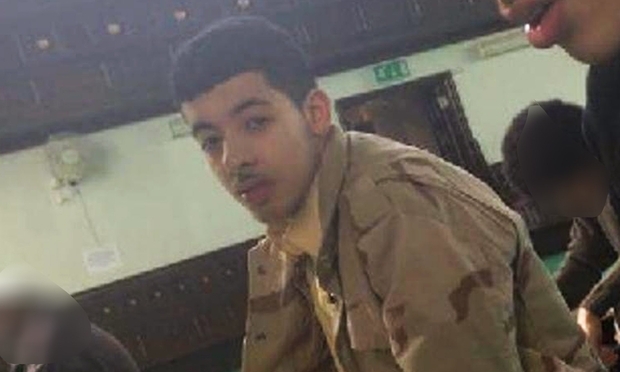Manchester bomber not reported to Prevent scheme: Police

British police have said that the Manchester concert bomber was not known to the controversial Prevent anti-radicalisation programme.
Speaking on BBC Radio Manchester, Ian Hopkins, the chief constable of Greater Manchester Police, said that Salman Abedi was only known to police over “relatively minor matter”, including receiving stolen good, theft and a minor assault.
Despite earlier reports that Abedi had been reported to police over his radicalisation, Hopkins said this had not been raised with local authorities.
“There’s been a lot of reporting and people commenting that he was reported to us on a number of occasions,” said Hopkins on Tuesday.
“You will have heard us talk about the Prevent programme, which is about safeguarding and trying to deradicalise and deal with those who are at risk of being radicalised,” he said. “Abedi was not known to the Prevent programme. He was not on any sort of Prevent agenda.”
The intervention by Manchester’s most senior police officer comes eight days after Abedi blew himself up at the Manchester Arena concert venue, killing 22 and injuring dozens.
Since the attack, thousands of police officer have been dedicated to the investigation into Abedi’s actions.
Twenty-eight forces, as well as the National Crime Agency, have been assisting police in the city with their investigation, according to the National Police Chiefs Council.
On Tuesday, a security cordon was again established around a property in Wigan thought to be linked to the attacks.
Police said they have released three men without charges that were taken into custody. At least 16 people have been arrested in connection to the attack.
"It will be a long investigation and it will take considerable time before we fully understand what has happened," the Greater Manchester police said in a statement on Twitter.
Two men from Fallowfield area, aged 20 and 24, and a 37-year-old man from Blackley area were released on Tuesday, the Greater Manchester police said.
Police are understood to have called in specialist prosecution lawyers to build cases against those in custody under the Terrorism Act, while Hopkins said officers had made “incredible progress” in the investigation.
The chief constable also used the interview to confirm that singer Ariana Grande is to perform a benefit concert for the victims on Sunday. She is set to be joined by Justin Bieber, Coldplay, Katy Perry and Miley Cyrus, according to reports.
“When the idea of the concert came up, our first reaction was that we need to speak to the families of the victims and see what they feel,” said Hopkins. “It’s fair to say that the majority of them are very much in favour. There are some that clearly aren’t. That is absolutely understandable.”
The singer will headline the 50,000 capacity Old Trafford cricket ground to raise money for victims and their families.
In an open letter to fans posted on social media, Grande said: “My heart, prayers and condolences are with the victims of the Manchester attack and their loved ones. There is nothing I or anyone can do to take away the pain you are feeling or to make this better. However, I extend my hand and heart and everything I possibly can give to you and yours, should you want or need my help in any way.”
Meanwhile, Manchester Victoria station – which had been closed since the bombing – reopened on Tuesday morning.
Elsewhere, questions remain over possible security service failings in the run-up to the attack, and on Monday it was announced that Britain’s domestic security service had launched two urgent inquiries into how it missed the danger posed by Abedi.
Abedi was on the radar of MI5 and his file was examined by officers as one of 20,000 suspects, but he was not one of the 3,000 people under active investigation, it is understood.
Hopkins added: “The home secretary announced yesterday that the security services are going to review what they knew as well. Obviously, I am not privy to what the security service did or didn’t know about that individual at this time, but from a police perspective that’s what I knew.”
Last week Middle East Eye revealed that the British government operated an "open door" policy that allowed Libyan exiles and British-Libyan citizens to join the 2011 uprising that toppled Muammar Gaddafi even though some had been subject to counter-terrorism control orders.
US officials, cited by NBC News, also reportedly said Abedi’s family had warned security services that he was dangerous following his visit to Libya, while local community leaders in Manchester have told British broadcasters that two people close to Abedi had warned police that he had made comments supporting terrorism and had said that “being a suicide bomber was OK”.
Middle East Eye propose une couverture et une analyse indépendantes et incomparables du Moyen-Orient, de l’Afrique du Nord et d’autres régions du monde. Pour en savoir plus sur la reprise de ce contenu et les frais qui s’appliquent, veuillez remplir ce formulaire [en anglais]. Pour en savoir plus sur MEE, cliquez ici [en anglais].

